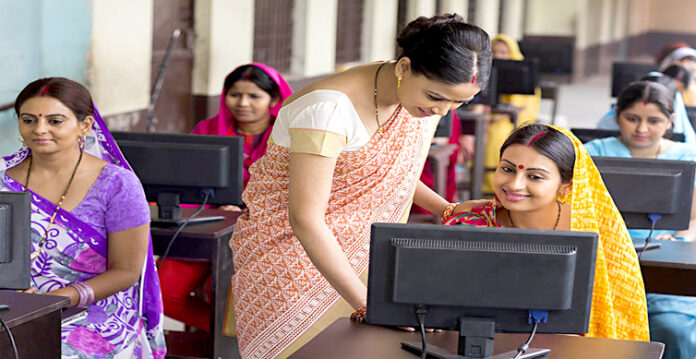As the world marks International Women’s Day, it is essential to move beyond symbolic gestures and recognize the untapped potential of women in shaping economies, industries, and societies. At Gedik Holding and Gedik University, we have long believed that empowering women is not just about equity—it is an economic imperative. With over 250 women excelling in diverse fields such as aerospace technology and welding, we take pride in fostering an environment where barriers are being dismantled, and opportunities are being expanded.
Historically, professions have never been rigidly gendered. Computing, once a male-dominated field, saw pioneering contributions from women, just as welding—a profession stereotypically associated with men—is now witnessing a rise in female participation. This shift underscores a critical message: exclusion is not a result of lack of capability but of entrenched biases.
The economic cost of keeping women out of the workforce is staggering. Both India and Turkey face challenges in this regard. While a majority of employable men in both countries are part of the workforce, female labour force participation remains alarmingly low—24% in India and 35% in Turkey, according to the World Economic Forum. This underutilization of half the population represents one of the biggest inefficiencies in modern economies. Prioritizing female education is a crucial first step. While India’s female literacy rate stands at 70%, Turkey fares better at 95%, yet both nations still have significant ground to cover in ensuring women gain access to higher education, technical training, and leadership roles.
Also Read: Women’s Day: Free access for women at all monuments on March 8
Economic Collaboration and Women’s Role in Growth
One of the most promising ways to empower women is through international economic partnerships. India and Turkey, for example, have growing collaborations in textiles and tourism, two industries where women play a pivotal role. India exports large volumes of yarn to Turkey, where female designers and artisans transform these raw materials into high-end garments for the global fashion market. In return, Turkish expertise in luxury fashion and manufacturing is shaping global trends.
Tourism is another sector where women are driving economic transformations. Indian wedding tourism in Turkey has flourished, with Turkish women at the forefront of event planning, hospitality, and luxury services. From organising grand Indian weddings in Antalya and Bodrum to mastering Indian cuisine and cultural hospitality, Turkish women have played an instrumental role in bridging traditions and creating seamless experiences for Indian families.
Yet, beyond trade, fostering women-led entrepreneurship can further strengthen ties between India and Turkey. Business networks, mentorship programs, and trade fairs connecting female entrepreneurs from both nations could spur innovation and investment. Women-led startups, particularly in digital marketplaces, sustainable fashion, and creative industries, would benefit immensely from cultural exchange programs and co-working initiatives that promote cross-border collaboration.
Cultural Exchange: A Platform for Women’s Empowerment
Cultural exchanges between India and Turkey have flourished in recent years. Over 300,000 Indian tourists visit Turkey annually, drawn to its rich history, vibrant bazaars, and warm hospitality. At the same time, Turkish television dramas have gained immense popularity in India, while Bollywood films enjoy a loyal following in Turkey. These connections offer a unique opportunity to showcase the contributions of women in cinema, fashion, and the arts.
Even in simple traditions like tea culture, there are deep cultural parallels. In Turkey, tea (çay) is a social ritual, much like masala chai in India. Whether served in a tulip-shaped glass in Istanbul or a clay cup in Kolkata, tea has long been a symbol of community, conversation, and commerce—a reflection of how cultures intertwine through shared customs.
Breaking Barriers for a Stronger Economy
Gender equality is not just a moral issue—it is an economic necessity. The cost of sexism and exclusion is evident in lost productivity, missed opportunities, and slower economic growth. Women’s education and workforce integration must become national priorities, not only in India and Turkey but across the world.
Empowerment requires more than celebration—it demands structural change. Governments must invest in STEM education for girls, corporations must enforce fair hiring policies, and societies must challenge outdated stereotypes that hold women back. By doing so, India, Turkey, and the global economy can unlock unparalleled growth, innovation, and prosperity.
This Women’s Day, let us not just celebrate women. Let us invest in them.
(This story is sourced from a third-party syndicated feed. Raavi Media takes no responsibility or liability of any nature. Raavi Media management/ythisnews.com can alter or delete the content without notice for any reason.)


